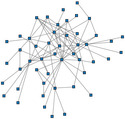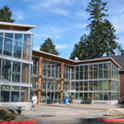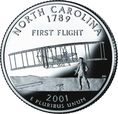July 2013
In community work, it is natural to talk about the problems and injustices we are fighting against racism, exploitation, violence, inequitable education.It is also important to name what we are for and what we are working to create.
At the Center for Ethical Leadership, our goal is to create healthy, just and inclusive communities. This is essentially what Martin Luther King Jr. spoke of when he described the goal of creating the beloved community. According to the King Center, a beloved community practices a “type of spirit and type of love that can transform opposers into friends.” It suggests “a reconciled world by raising the level of relationships among people to a height where justice prevails and persons attain their full human potential.”
To bring about the type of community we want, the beloved community, we need people who will come together across divisive boundaries, create deep and meaningful relationships, and work together on community change.
That is why we, at the Center, develop and use creative social engagement approaches like Gracious Space, circles, the Confluence, and the Community Learning Exchange. We purposely create diverse gatherings locally and nationally to cultivate leadership capable of solving community issues. We bring people together and hold the space for important conversations.
In this newsletter, we highlight three community engagement opportunities to create the beloved community -- the Community Learning Exchange, Circles initiative, and Confluence.
In community work, it is natural to talk about the problems and injustices we are fighting against racism, exploitation, violence, inequitable education.It is also important to name what we are for and what we are working to create.
At the Center for Ethical Leadership, our goal is to create healthy, just and inclusive communities. This is essentially what Martin Luther King Jr. spoke of when he described the goal of creating the beloved community. According to the King Center, a beloved community practices a “type of spirit and type of love that can transform opposers into friends.” It suggests “a reconciled world by raising the level of relationships among people to a height where justice prevails and persons attain their full human potential.”
To bring about the type of community we want, the beloved community, we need people who will come together across divisive boundaries, create deep and meaningful relationships, and work together on community change.
That is why we, at the Center, develop and use creative social engagement approaches like Gracious Space, circles, the Confluence, and the Community Learning Exchange. We purposely create diverse gatherings locally and nationally to cultivate leadership capable of solving community issues. We bring people together and hold the space for important conversations.
In this newsletter, we highlight three community engagement opportunities to create the beloved community -- the Community Learning Exchange, Circles initiative, and Confluence.
June 2013
How can we cultivate collective ownership for community wellbeing?
The needs of our community are too big to be met through government and non-profit agencies alone. However, there is enormous goodwill and untapped resource in in our local communities to develop solutions to hunger issues.
Over the last two years, the Center for Ethical Leadership has partnered with organizations and individuals to tap into the vast resource of people who want to care for their neighbors. We have developed local leadership that understands how to work in networks. Nourishing Networks have been established in Kirkland, Northshore, Bellevue, Issaquah and Redmond, working to end hunger in North and East King County.
The work of Nourishing Networks is supported by the Nourishing Networks Institute, which is a program of the Center. In this newsletter, you will learn about the recent gathering of the Nourishing Networks, a snapshot of the work being done by them, and a specific story of one new program that has emerged – the Northshore Community Kitchen.
How can we cultivate collective ownership for community wellbeing?
The needs of our community are too big to be met through government and non-profit agencies alone. However, there is enormous goodwill and untapped resource in in our local communities to develop solutions to hunger issues.
Over the last two years, the Center for Ethical Leadership has partnered with organizations and individuals to tap into the vast resource of people who want to care for their neighbors. We have developed local leadership that understands how to work in networks. Nourishing Networks have been established in Kirkland, Northshore, Bellevue, Issaquah and Redmond, working to end hunger in North and East King County.
The work of Nourishing Networks is supported by the Nourishing Networks Institute, which is a program of the Center. In this newsletter, you will learn about the recent gathering of the Nourishing Networks, a snapshot of the work being done by them, and a specific story of one new program that has emerged – the Northshore Community Kitchen.

The vision of the Nourishing Network Institute (NNI) is that passionate people everywhere are working in profound ways to tackle tough challenges. Together, we are weaving the talents, time and imagination of all caring community members into a net so tightly woven that no one can fall through.
NNI has created frameworks and tools to support network principles in moving from passion to action, and has been active in supporting 5 local networks in North and East King County. NNI disseminates and activates adaptive techniques that transcend the current ways used to solve complex community problems. To read stories of people using these frameworks, click here. |

Eighteen months ago, in the closing session of the Nourishing Networks’ first Thanksgiving Summit, representatives of the first five networks were sharing their commitments, a regular practice called “I Make the Net Work.” The commitments were inspiring and the participants filled with passion. Sue Freeman’s commitment was to create a “community kitchen” sponsored by Northshore Council PTSA, with the hope that other local organizations and individuals in the community would join the effort and help make the program a reality. Today, the Northshore Community Kitchen has prepared and packed a total of 3,058 nutritious meals, and is an example of how the Nourishing Networks brings community together to solve local problems...
|

St. Peter’s United Methodist Church in Bellevue buzzed with energy as Nourishing Networks representatives and regional partners from the Seattle Foundation, the Hartman Research Group, Hopelink and Food Lifeline came together. The theme was Learn, Link and Leverage!, and participants gathered to share updates and lessons learned since the previous regional gathering in November of 2012.
The program started late as old friends reunited and new ones were introduced to the community. As always, the agenda began with sharing stories about the successes, the challenges, and the lessons faced by the Networks... |
April 2013
On March 28, 2013, at our 8th Annual Legacy Event, over 150 members of the community gathered to celebrate three people selected as recipients of the 2013 Bill Grace Leadership Legacy Award. Their vision, leadership, and commitment advance the common good in our region, and inspired all in attendance.
Below is more information about each of the winners as well as a link to a video of their remarks about their own leadership journey. You can also watch the video of our Keynote Speaker, Linda Nageotte, CEO & President of Food Lifeline, as she shared her own approach to leadership and invited us to consider vulnerability as a core leadership competency.
On March 28, 2013, at our 8th Annual Legacy Event, over 150 members of the community gathered to celebrate three people selected as recipients of the 2013 Bill Grace Leadership Legacy Award. Their vision, leadership, and commitment advance the common good in our region, and inspired all in attendance.
Below is more information about each of the winners as well as a link to a video of their remarks about their own leadership journey. You can also watch the video of our Keynote Speaker, Linda Nageotte, CEO & President of Food Lifeline, as she shared her own approach to leadership and invited us to consider vulnerability as a core leadership competency.

Shauna Yusko is the founder and director of Pantry Packs, a non-profit dedicated to keeping hungry kids fed in the Lake Washington School District. Started in her living room, Pantry Packs now coordinates extensive community involvement and volunteers to serve over 400 hungry students each week with food for the weekend. She shared with us her own story and what has moved her to take on this extraordinary effort in addition to being a full time teacher librarian at Evergreen Middle School and a wife and mother.
|

Darrell Hillaire is a respected Tribal Leader for the Lummi Nation and has led many efforts to strengthen his community and honor Lummi Nation traditions. Among these is the creation of the Lummi Youth Academy which provides a stable living environment and structure for young Native people to encourage academic success and gain an understanding of their tribal community. He shared his reflections on Life, Truth and Light.
|

Mary Jean Ryan is a committed advocate for social justice and improving education through closing the achievement gap. She is the founding director of the Community Center for Education Results which staffs the Road Map Project. This is a community –wide effort to double the number of students in South Seattle and South King County who are on track to graduate from college or earn a career credential by 2020. Mary Jean reflected on her leadership journey.
|
March 2013
How can we create a more positive future across race in our communities?
When the Center for Ethical Leadership begins a new project, we encourage people to share stories about how they experience life in their community. We also ask them to name the boundaries that divide people that need to be crossed in order to create a healthier community. One of the prominent themes to surface is that race continues to influence how our systems and institutions distribute opportunities and benefits.
As people work to undo the inequities created because of race, they often implement diversity training. This work can increase understanding and cultural competence so people can interact in ways that are respectful and effective. But these workshops can also leave people with unresolved tensions, unclear of what to do with their new knowledge. Lee Mun Wah, a Chinese American film maker and Executive Director of StirFry Seminars and Consulting, says people can be hesitant to “speak up because they’re afraid of repercussions, being seen as ignorant or being labeled.” People may have more awareness, but “managers often don’t know how to begin a conversation on diversity issues in their departments.”
We are working with communities that are employing other strategies to approach racial equity. In this newsletter, we highlight how community groups in Minneapolis are analyzing the structural policies and practices of public schools in order to ensure that they promote racial equity. We also describe how peacemaking circles are promoting positive, cross race relationships in Seattle. Finally, we share a story about a teacher in Southern California who uses Gracious Space to help her multi-racial high school class have honest dialogues.
How can we create a more positive future across race in our communities?
When the Center for Ethical Leadership begins a new project, we encourage people to share stories about how they experience life in their community. We also ask them to name the boundaries that divide people that need to be crossed in order to create a healthier community. One of the prominent themes to surface is that race continues to influence how our systems and institutions distribute opportunities and benefits.
As people work to undo the inequities created because of race, they often implement diversity training. This work can increase understanding and cultural competence so people can interact in ways that are respectful and effective. But these workshops can also leave people with unresolved tensions, unclear of what to do with their new knowledge. Lee Mun Wah, a Chinese American film maker and Executive Director of StirFry Seminars and Consulting, says people can be hesitant to “speak up because they’re afraid of repercussions, being seen as ignorant or being labeled.” People may have more awareness, but “managers often don’t know how to begin a conversation on diversity issues in their departments.”
We are working with communities that are employing other strategies to approach racial equity. In this newsletter, we highlight how community groups in Minneapolis are analyzing the structural policies and practices of public schools in order to ensure that they promote racial equity. We also describe how peacemaking circles are promoting positive, cross race relationships in Seattle. Finally, we share a story about a teacher in Southern California who uses Gracious Space to help her multi-racial high school class have honest dialogues.

The Center for Ethical Leadership connects communities across the country to share their successful approaches to fostering collective leadership and making community changes. One of the members of this Community Learning Exchange network is MIGIZI, an urban Indian organization in Minneapolis. MIGIZI has been instrumental in forming an Education Equity Organizing Collaborative (EEOC) comprised of eleven racially, culturally and geographically diverse organizations that are working together to promote education equity in Minnesota. The EEOC is working to move the equity agenda at the state level.
What we measure in our education system matters. It focuses our attention and resources. If we want our public education system to provide equitable opportunities for all students we need to make equity a measure of educational success. The EEOC is doing just that in Minnesota. They are partnering with the Minnesota Department of Education and the Great Lakes Equity Center to create a set of equity standards and a rubric for measuring progress toward equity in districts and schools throughout the state. |
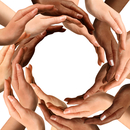
When people are treated inequitably or viewed as “the other,” it causes pain, trauma, stress and barriers between community members. This leads to an unhealthy social system that interferes with all the institutions and systems in our communities. The Changing Racial Relationships Circles initiative seeks to build strong relationships that are capable of holding important dialogues around race in the Puget Sound area.
During a three-day Circle, the Center for Ethical Leadership brings together a group of individuals from diverse racial backgrounds who are ready to open up to deeper cross-race relationships. Unlike most approaches to addressing racism, circles are not a training, workshop, or task-oriented meeting. Instead, they provide an opportunity for participants to do their own deep personal work regarding race. Changing Racial Relationships uses peacemaking circles, a unique approach to conflict resolution and healing based on traditional practices from a number of cultures. |
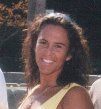
"I’m bringing this back to my school.” This is what Erin Lopes decided when she first encountered Gracious Space two years ago. Participating in a Community Learning Exchange opened her eyes to a process that would change the way her high school students interacted with each other and saw themselves.
Lopes, an art teacher in Southern California, attended Voices in Action: National Youth Summit in Washington, D.C., in 2011. The event was sponsored by the Dept. of Education, and several CLE teams attended. During the summit, the staff from the Center for Ethical Leadership led the gathering’s participants in Gracious Space. When she returned to California, Lopes began incorporating Gracious Space into her Freshman Focus course at Laguna Hills High School. The class teaches forty students how to transition into high school successfully and prepare for college. The students are racially and socioeconomically diverse, and they hang out with different social groups on campus. Read more. |
February 2013
How can communities that have been treated inequitably by our society cultivate leadership that improves lives in their communities?
In January, we posed some of the compelling questions the Center is addressing this year. This month, we dive into one of those questions more deeply. We highlight how the Community Learning Exchange is helping communities and share stories of how communities are developing local solutions to issues.
We also invite you to post your own examples of leadership that improves lives in communities at the Center’s Facebook page.
How can communities that have been treated inequitably by our society cultivate leadership that improves lives in their communities?
In January, we posed some of the compelling questions the Center is addressing this year. This month, we dive into one of those questions more deeply. We highlight how the Community Learning Exchange is helping communities and share stories of how communities are developing local solutions to issues.
We also invite you to post your own examples of leadership that improves lives in communities at the Center’s Facebook page.
January 2013
With the start of 2013, the Center for Ethical Leadership marks our 22nd year of leadership for the common good. In that time, we have worked with people from 55 countries and 45 US states, and we are pleased to apply all that we have learned to the critical questions that communities are currently addressing.
There is unlimited power to be tapped when people pose compelling questions that inspire the passion and good will of others in the community. This year, we continue to work with community partners on key questions. The following initiatives are underway:
With the start of 2013, the Center for Ethical Leadership marks our 22nd year of leadership for the common good. In that time, we have worked with people from 55 countries and 45 US states, and we are pleased to apply all that we have learned to the critical questions that communities are currently addressing.
There is unlimited power to be tapped when people pose compelling questions that inspire the passion and good will of others in the community. This year, we continue to work with community partners on key questions. The following initiatives are underway:

Changing Racial Relationships through Circles Process
How can we create a more positive future across race in our communities? Racial difference in our society often creates inequities, traumas, fear, and discomfort. Often, the approach to cross-race work is in response to a crisis or through training. The Center offers a different approach that aims to build strong relationships capable of holding the important dialogues we need around race. This year, the Center will offer a number of circles experiences focused on changing racial relationships. Circles provide the space for transforming relationships. They lift barriers between people, opening fresh possibilities for connections, collaboration and understanding. As more people in our region develop positive cross-race relationships using circles, we will increase our capacity to work on personal and institutional changes that create more racial justice and fairness. We will be able to bring these conversations into our schools, colleges, work places, and community organizations. For more information, contact Dale Nienow. |

Nourishing Network
How can we cultivate collective ownership of community wellbeing? The needs of our community are too big to be met through government and non-profit agencies alone. However, there is enormous goodwill and untapped resource in in our local communities to develop solutions to hunger issues. For the last two years, the Center has partnered with organizations and individuals to tap into the vast resource of people who want to care for their neighbors. We have developed local leadership that understands how to work in networks. Local Nourishing Networks have been established in Kirkland, Northshore, Bellevue, Issaquah and Redmond, and more communities are interested in starting their own networks. This year we will continue to support the development of working in networks to meet community needs through Nourishing Networks, a new program of the Center. For more information, contact Linda Benson. |

Confluence on Leadership in Networks
How can new learning about working in networks help communities meet the needs of people who are hurting? For years, the Center has hosted Confluences as a way to bring people together across boundaries to tackle complex social issues in our community. We create Gracious Space so people can cultivate relationships, find innovative solutions, and form action plans that will move their work forward. Working in networks is different than working in organizations or coalitions with traditional lines of leadership. Network principles encourage participants to self-organize around creative solutions. The Center will host a Confluence in the fall of 2013 to learn, and apply the principles of, leadership in networks. This gathering will bring together local and national people, to share the latest learning and to organize next steps for initiating and developing networks in home communities. For more information, contact Steve Stapleton. |

Community Learning Exchange
How can communities that have been treated inequitably by our society cultivate leadership that improves lives in their communities? Through the Community Learning Exchange, we have connected over 600 change agents, organizations, and communities that are working on community change initiatives across the country. This year, the Community Learning Exchange will focus on building strong partnerships to ensure that schools work for all our children. Education is often the route to opportunity and building a middle class in communities of color. We will offer learning exchanges in:
|


